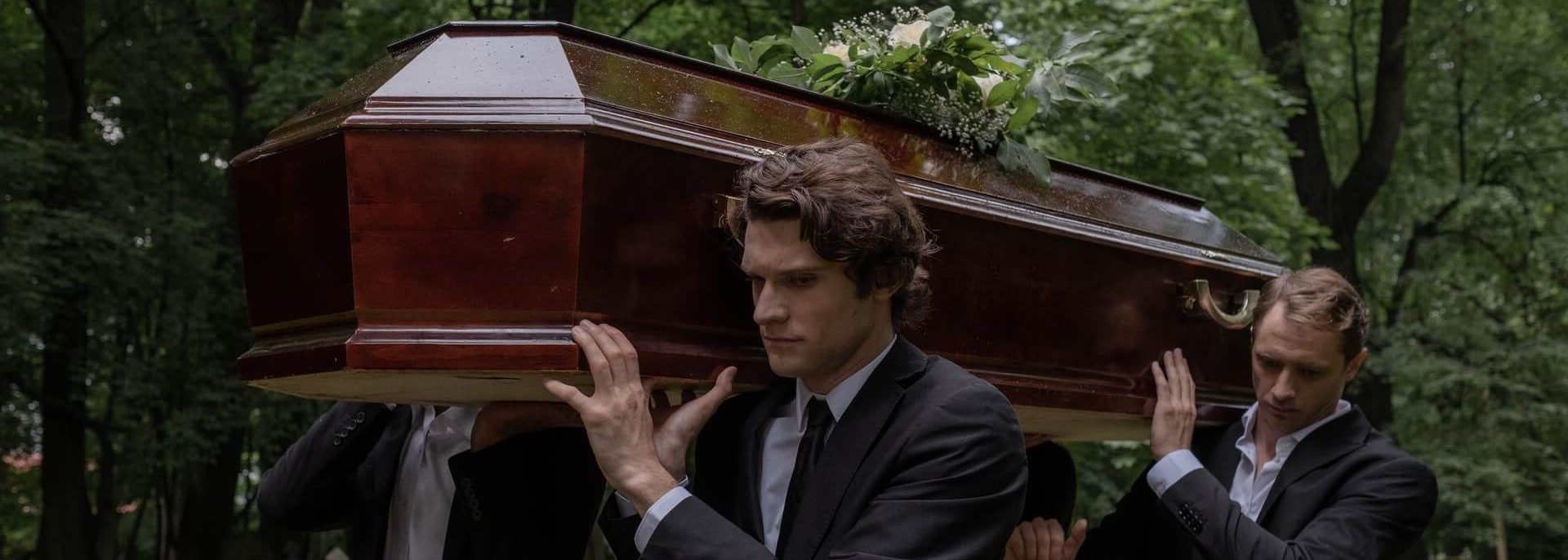
What is the Funeral Support Payment? What can I get help with? Can I get this benefit if I live in Scotland? You may have experienced the death of a loved one. Additionally, you may be responsible for their funeral. If this is the case, you or your funeral director may receive help to cover funeral costs. Your Benefits will walk you through everything you need to know about Funeral Support Payment.
What is Funeral Support Payment?
You may live in Scotland. Additionally, you may have experienced the death of a loved one. Then, you could have a funeral planned. In this case, you could Funeral Support Payment towards covering the costs of a funeral. In fact, this could be for a funeral for an adult, a child or a baby. This is also true for funerals for stillborn babies. This benefit pays for the funeral costs, for a person who has died.
Typically, this scheme will not cover all of your funeral costs. However, you should be able to cover a certain amount of the costs incurred by the funeral expenses. Additionally, either you can receive the payments or the funeral director. This is if the funeral director is helping you organize the funeral.
You may not receive multiple government aids to cover your funeral expenses. Then, you may not be able to receive Funeral Support Payment. More specifically, you will not be able to receive the benefit if you get one of the following:
- Funeral Payment, if you live in Northern Ireland;
- Funeral Expenses Payment, if you live in Wales or England.
Additionally, you may have had a stillbirth. Furthermore, your hospital may help you. More specifically, they could be helping you organise the funeral of the baby, as well as paying for it. If you don’t have any additional costs, you will not be able to claim Funeral Support Payment.
What is the definition of a funeral?
In order to receive Funeral Support Payment, you need to have a funeral being organized. Then, you need to know the definition of a funeral. In fact, a funeral is the cremation or burial of a deceased person. In fact, it also includes the funeral for a stillborn.
Your loved one may have been cremated. After this, their ashes may have been buried. If this is the case, this ceremony is not considered as a funeral.
Am I eligible for Funeral Support Payment?

You could be eligible for Funeral Support Payment. Then, you would be able to receive help with funeral payments. However, you need to be eligible. More specifically, you will be eligible if all of the following apply to your situation:
- Your partner or yourself receive a qualifying tax credit or benefit;
- You reside in Scotland;
- The individual that passed away resided in the United Kingdom;
- Your application is made following the death of the individual, up to 6 months following the date of the funeral;
- The funeral is taking place in the United Kingdom; however, it may also sometimes be done in Switzerland, Norway, Liechtenstein, Iceland or a European Union country;
- Your partner or yourself are able to be responsible to cover the costs incurred by a funeral;
- Your partner or yourself bear the responsibility for the funeral.
Typically, a certain person may accept responsibility for the funeral costs. In fact, this is more specifically the case for the closest relative to the person that was deceased. In fact, the closest relative may be responsible for the costs. Then, they could be the one to receive Funeral Support Payment.
The closest relative may be a multitude of things. In fact, they may be a sibling, parent, child, or the partner of the deceased individual. However, you or your partner may still apply for Funeral Support Payment, even if you are not the closest relative.
You may apply for Funeral Support Payment even if you are not the closest relative of the individual that died. In this case, you will need to explain why you have the responsibility of the funeral, in your application.
What if I couldn’t claim Funeral Support Payment because of Coronavirus?
You may not have been able to claim Funeral Support Payment because of Coronavirus (COVID-19). More specifically, you may not have been able to apply within 6 months of when the funeral happened. In this case, if you apply, your claim will be treated as being on time, and not late in any way.
Funeral Support Payment: what is a qualifying tax credit or benefit?
To receive Funeral Support Payment, you or your partner need to receive a qualifying tax credit or benefit. In fact, this includes Income Support or benefits like Universal Credit. Additionally, income-based or not contribution-based Jobseeker’s Allowance (JSA), and the same types of Employment and Support Allowance (ESA) may qualify you.
If you have children, you could receive a certain amount of Child Tax Credit. More specifically, you could receive the following:
| Child Tax Credit amount for the 2021 to 2022 tax year | |
|---|---|
| Child Tax Credit element | Maximum amount per year |
| 'Family element' (the basic amount) | £545 |
| 'Child element' (subsequent payment for each children) | £2,845 |
| Amount for disabled children | £3,435 (this amount is added to the child element) |
| Amount for severely disabled children | £1,390 (this amount is added to the child element and disabled child element) |
Other benefit also qualify you for this financial aid. This includes Housing Benefit. As the name suggests, this would help you receive help with your housing costs, like rent. You could also get Pension Credit.
How much is Funeral Support Payment?
On average, Funeral Support Payment is typical £1,800. However, how much you can receive depends on a number of factors. However, the benefit can help pay for a number of things. More specifically, this includes medical, document, travel, transportation, funeral and cremation or burial costs.
The deceased individual may have left behind some money in order to cover the funeral costs. More specifically, the money left behind may cover some or all of the costs. In this case, you will be able to receive less Funeral Support Payment. This includes the following:
- Burial clubs or pension lump-sums payments;
- Funeral plans;
- Insurance policies that cover funerals;
- General funds from the deceased individual.
How can I apply for Funeral Support Payment?

Before you apply for Funeral Support Payment, there are a couple of things that you need to do. In fact, first, you should register the death of the deceased individual. Additionally, you need to check that you qualify for Funeral Support Payment.
This is optional. However, it could be a good call to let your funeral director know that you consent to them talking about your claim with Social Security Scotland.
Additionally, you will need to provide any details that you have about the funeral director. Lastly, you will need to give the details of your bank account. This is if you would like to receive payments and not your funeral directors.
What are the methods to apply?
You can apply for Funeral Support Payment online, by phone or by post. Applying online is the most straightforward and simple method. However, it could be that you are not able to apply through this method. In fact, this is the case if the following applies to you:
- You do not own a bank account, and receive payments from the Department for Work and Pensions through other means;
- Your application is being made for another person, who cannot take care of their application themselves;
- You do not have your own permanent address.
Otherwise, if you are eligible, you can apply online on the mygov.scot website. You may not have been able to apply because of Covid-19. Then, you will need to indicate this in your application. You to write the exact reason. In the ‘Additional Information box, simply say that it was because of COVID-19.
Can I apply by post?
You can apply for Funeral Support Payment by post. Then, you would use a paper form, provided by Social Security Scotland. There are 2 different forms. It depends on the age of the deceased individual.
The individual may have been over 18 years old. Otherwise, the individual may have been 17 years or younger. For each situation, there is a different form to fill to claim Funeral Support Payment.
Depending on your circumstances, it depends what you could get. Pre-paid funeral plan, registered charity and benefits calculator are things that you should know about. Your Benefits is a company limited by guarantee in England and Wales. You may skip to pay for the funeral, or navigation skip to content.
Funeral Support Payment: what if the individual was 18 years or older?
You may apply for someone who was over 18 years old, however, you will need to have some information. In fact, you will need information on the money of the deceased individual.
You may be able to receive additional benefits. In fact, you may even be eligible to receive benefits, but not claiming them. Then, Your Benefits can help. In fact, we provide articles that talk about the financial aid and payments you could receive. A number of these articles are linked in this article.
Additionally, we provide a free simulator, which can show you all the benefits you could receive. Indeed, this service can show you the payments you are entitled to. There could be a number of them that you are not claiming. And again, it’s completely free.


